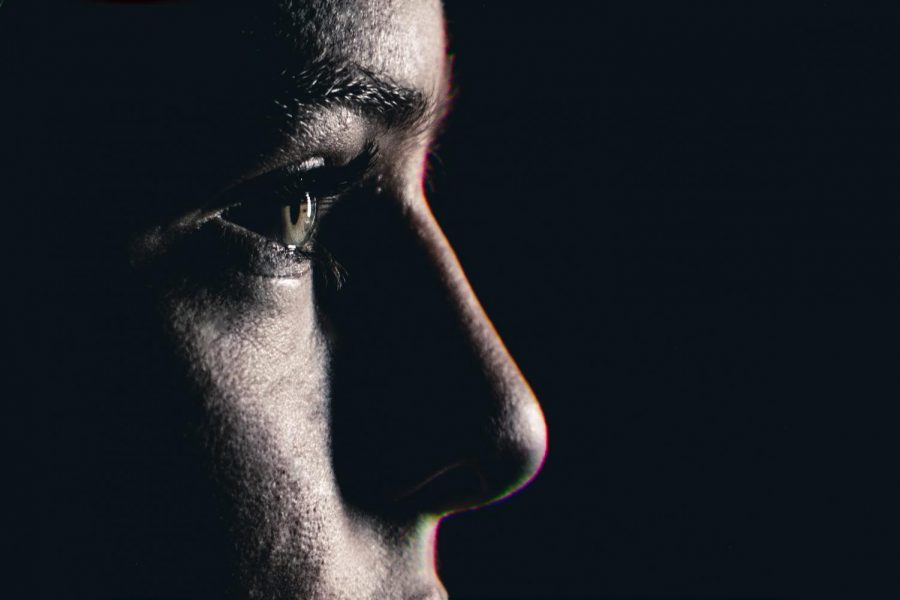Always watching
Constantly being on the lookout for a possible attacker has become all too real
Long after the sunset one evening last fall, Madeline Hall ‘20 and two of her close friends walked cautiously along the sidewalk in downtown Denver. One of the girls glanced over her shoulder with every step, the anxiety of the unknown spinning through her head. The girls began to walk faster through the shadows between flickering street lamps.
Hall noticed a man trailing behind her group. As the man walked faster and the distance between them rapidly closed, she grew more and more anxious. She was unsure of what was to come and what she would have to do in order to stay safe.
As they walked, he continued to approach, interrupting their conversations. “He smelled like alcohol, too,” Hall said. They tried to ignore him and continued talking, but no matter how far they walked, he kept following. The girls worried if they said anything to deter him, he might get violent.
“We were out on the street corner waiting for the light to turn so we could cross and he kind of pushed [my friend] against the street pole and grabbed her arm and was yelling at her in her face,” Hall said.
After a few moments of pure shock and anticipation, Hall and her friends yelled at the man, and he disappeared soon after. Even though the man left, the girls went home almost immediately, their fun night out ruined.
“[We were] just out to have a good night,” Hall said.
This is the story of what thousands of girls have had to go through, and what Madeline Hall ‘20 and her friends experienced last fall.
While the moment of harassment may only last for a couple of minutes, the effects can last for years. This fear causes girls to carry pepper spray and scour the back of the cars before getting in the driver’s seat in anticipation. From a dark, quiet street to some busy office space, they are always consciously aware of who could be dangerous.
Sarah Jeffries ‘22 was sexually harassed when she was only seven years old. “I think people know that it can take an emotional toll, but when I think about it, I can still feel it,” She said. “I don’t think people realize that.”
Often times, girls are caught off guard and frightened. The assaulter may take their confused silence as consent. “If you comment on someone’s body, and you think you got away with it just because they didn’t say anything about it [you’re wrong]. People aren’t oblivious, and they know what’s going on. They just don’t know how to respond,” Jeffries said.
Some girls tend to feel awkward or uncomfortable yelling “Stop!” or “No!” in the middle of a quiet street, and are afraid of over-reacting and making a scene. They don’t want to draw attention to the situation.
“I think women don’t want to upset people and they don’t want to hurt peoples’ feelings,” Hall said. “You can yell at them because it’s your safety and it doesn’t matter if people around you think it’s weird. Just draw attention to yourself,” she said.
While sexual harassment often happens in private and secluded places, it can also occur in public places, such as a street corner while waiting for a light to turn. Catcalls, inappropriate comments, and occasional touches are all too common and are often overlooked in a busy setting.
“I also think that one of the other big things is just having situational awareness,” Monarch School Resource Officer Chris Humphreys said. “Everybody nowadays, they walk around on the sidewalk, and they’re looking down at their phones with absolutely no idea what’s going on around them. I’m guilty of that myself.”
Humphreys suggests that people, both women, and men, need to hold themselves responsible for being aware of other peoples’ safety, rather than mindlessly scrolling through Instagram or sending a blurry sidewalk picture through Snapchat.
“If I’m walking down on the 16th Street Mall, I know if somebody is right behind me,” Humphreys said. “I’m looking at the people who are passing and things like that. I don’t do that just because I’m an off duty police officer. I think everybody should do that.”
Some women, such as Hall, have begun to take measures to protect themselves, and others, in this new, yet important, #MeToo era of sexual harassment. Rather than depending on others to speak up for them, women have begun to use their own voices and have realized just how powerful their words can be.
“We learned that your voice can really scare people,” Hall said. “I just yelled at him as loud as I could, just like, ‘Get away from us,’ and then like he was like, ‘Oh, they aren’t here to play games.’”
Hall chose to use her voice in the moment and is continuing to use her voice now. She is speaking up to not only protect herself, but to help other women gain the courage to tell their stories or scare off their attackers as well.
Speaking out can be a terrifying thing, and there is absolutely no doubt about that. On the other hand, though, speaking out can truly save lives.































